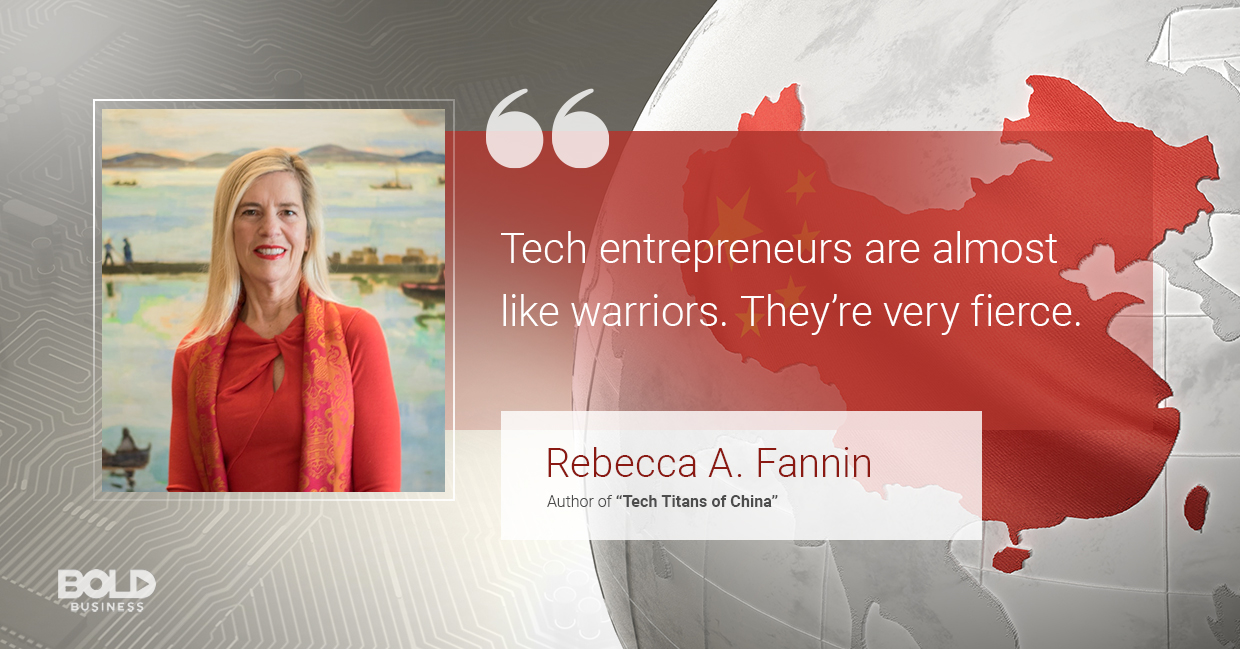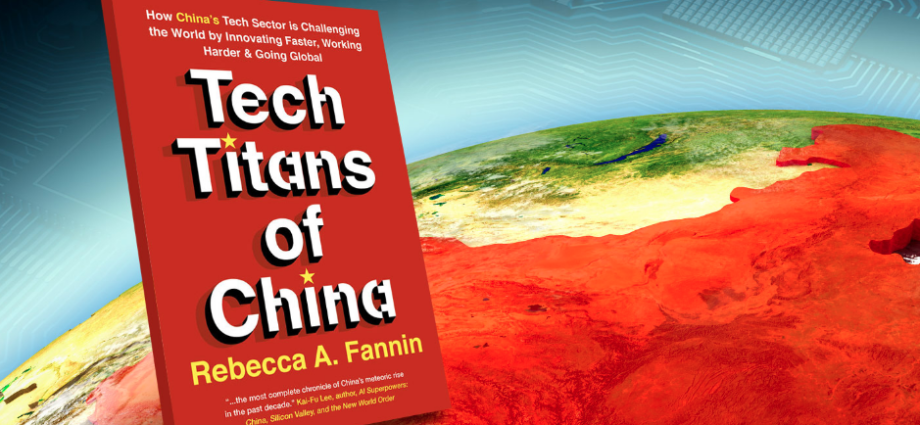
Asia Books ขอชวนนักอ่านมาพบกับหนังสือน่าอ่าน “Tech Titans of China: How China’s Tech Sector is Challenging the World by Innovating Faster, Working Harder, and Going Global” ที่จะพาคุณไปเจาะเรื่องราวของอุตสาหกรรมด้านเทคโนโลยีที่มีบทบาทสำคัญในการสร้างความก้าวหน้าของประเทศจีน ทั้งประวัติความเป็นมา การบริหารและกลยุทธ์ของบริษัทในกลุ่มอุตสหกรรมนี้ ที่จะทำให้จีนกลายเป็นมหาอำนาจด้านเทคโนโลยีในอนาคตอันใกล้
.
ติดตามเรื่องราวอันน่าสนใจด้วยตัวคุณเองได้แล้วที่เอเซียบุ๊คสทุกสาขา หรือสั่งซื้อผ่านช่องทางออนไลน์ คลิ๊กเลย >>> https://bit.ly/32Hew4N
Tech Titans Of China And The Shifting Paradigm Of Global Economic Dominance
Ed: What’s the bold idea that’s giving them the success some of these companies are having? What’s the secret sauce?
Rebecca: I think a top-down, centralized policy by the government is driving it, overall. This doesn’t mean the government is financing them – they have traditional funding. But the Chinese government said China would be a tech leader, and they set the agenda. I think that does influence the entire tech sector.
Ed: If we are in fact entering into a trade war, how are Chinese companies positioned?
Rebecca: [Baidu, Alibaba and Tencent] are the first generation of tech companies, and in some cases, they were the copiers of Silicon Valley companies. But today Chinese companies have evolved and spread out into many other sectors… It’s something that US companies haven’t done to the degree that Chinese companies have done. In addition, Chinese companies are investing in Southeast Asian countries, and Chinese culture can spread more easily than Western cultures, as it’s from Asia to Asia.

Ed: If I were going to create a chart that had the culture/work ethic/innovation environment, how would that compare with the US? Can you go through a couple of dimensions that would almost be lessons to the US as to why these Chinese companies are becoming titans?
Rebecca: Tech entrepreneurs are almost like warriors. They’re very fierce. With price-cutting, talent stealing… there’s fierce competition. Take the case of Uber and Didi. Uber did their best, but Didi did their price-cutting… and Uber actually lost. I think that US companies are really underestimating the fierceness of the competitors and their work ethic… some of them are working [12-hour days seven days a week]. A lot of employees see this as their life and their mission, and they want to get rich. They see their titans, who cashed out and got rich, and they have a lot of heroes to follow.
Ed: You use the word “fierce”, but there’s also the word “ethical”… is there some kind of values difference?
Rebecca: For years you heard that you couldn’t trust the Chinese, that you would set up a plant and they’d steal your workers and set up a plant a few miles away. But that’s changed. I think this idea of IP protection is not as pronounced as it used to be, and China has definitely come up the curve in terms of patents. When you look at the number of patent filings in the world, China is ranked up there with the US.
Ed: That’s kind of a natural progression – in their earlier years, they didn’t have the research and development, and innovation, really that developed, so they copied a bit. But now they have more innovation.
What’s your quick blink: This escalating trade conflict between the US and China – is this the beginning of a new cold war?
Rebecca: It looks like it could escalate. What we’re doing now will only reinforce China’s desire to innovate on its own.
Ed: There’s a long-term burden being put upon the Chinese economy now, because once factories are set up in Vietnam, et al., China will lose jobs. Do you see this as having an impact?
Rebecca: Yes, but I’ve also heard that it’s hard to get the same quality elsewhere. When you go to Malaysia or Vietnam, you may win on the tariff part of it, but you won’t get the same quality.
Ed: Would this cold war permanently hurt the Chinese economy?
Rebecca: Possibly. But I’ve also heard companies say we can’t get the same part from somewhere else, we can only get it from China, so we’re going to have to pay the tariff.

Ed: Do you think that some of the technology is going to thrust forward as easily in this environment?
Rebecca: Yes, we have [Beijing ByteDance Technology Co Ltd.] going global, it’s the world’s number one unicorn. They have TikTok, and it’s giving Facebook and others a run for their money. You do see the Chinese electric vehicles making some inroads here, too. And the Chinese are ahead in the production and adoption of electric vehicles.
A rich vein of eager venture capitalists. A government keen on setting an agenda of economic growth and tech dominance. An individual work ethic that’s virtually unmatched anywhere else, turning its massive workforce into a global game-changer. Clearly, the days of underestimating our friends in the east are over.
“You have a situation where Chinese companies have an advantage,” said Fannin, speaking as much about the potential of the Chinese market as the top-down positive influence their government has in guiding that growth.
According to Tech Titans of China, the Amazons, Apples and Facebooks of the world may have carved out their sizeable share of the tech market, but Chinese companies like Pinduoduo, SenseTime, DJI and others could soon disrupt everything.

